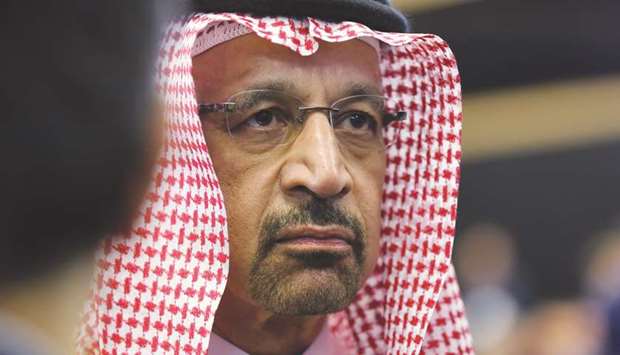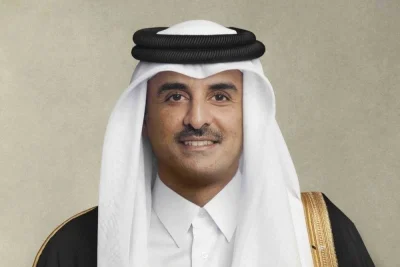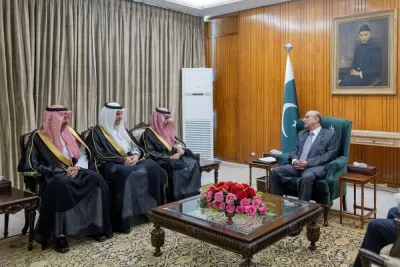But his toughest test comes this week when the Organization of Petroleum Exporting Countries holds what’s likely to be its most difficult meeting in years. As economic growth, renewed sanctions on Iran and the collapse of Venezuela’s petroleum industry stretch the global oil market, he needs to ensure a smooth exit strategy from the cuts without causing a crash in prices.
To make things more complicated for the oil diplomat, Opec is being buffeted by competing geopolitical agendas. While Riyadh and Moscow have agreed to open the taps, Caracas and Tehran want higher prices to compensate for the impact of US sanctions.
“The consensus is imploding,” said Roger Diwan, a veteran Opec watcher at consultant IHS Markit Ltd. “I don’t see how you can reconcile the positions of Russia, Saudi Arabia, Venezuela and Iran. The contradictions are too many.”
And behind the scenes, a Trump administration worried about the impact of rising gas prices on mid-term voters is lobbying hard for a surge in production.
“This is the most political Opec meeting in a long time,” said Amrita Sen, chief oil analyst at consultant Energy Aspects Ltd.
When al-Falih was appointed energy minister in May 2016, replacing the veteran Ali al-Naimi after almost 25 years in the job, Saudi Arabia had little grip on the market: US shale production had stolen market share and Opec’s policy response was essentially every man for himself. With prices barely above $45 a barrel, Saudi Arabia was bleeding foreign reserves at the rate of $10bn a month.
Al-Falih first made clear Riyadh was prepared to reverse the pump-at-will policy al-Naimi had forced on the rest of Opec in 2014. Then, with the help of his boss, Prince Mohammed bin Salman, he reached out to Russia, convincing Moscow to join Opec production curbs for the first time in more than a decade.
He built a close working relationship with his Russian counterpart Alexander Novak, cementing the alliance between the world’s two largest exporters. They talk regularly, both by phone and in person, and like to put forward a united front in joint media appearances. Last Thursday, they were at Moscow’s Luzhniki stadium to watch Russia beat Saudi Arabia in the opening match of the World Cup together. Two days later, Novak visited Saudi Arabia for a working meeting with al-Falih.
Mohammed al-Shatti, the national representative at Opec from Kuwait, said that al-Falih delivered two new things to the oil alliance.
“The first is his good cooperation with non-Opec and that’s one of the reasons behind the success of the current production cut agreement,” he said. “The second feature is his ability to think outside of the box and look for new ideas all the time.”
Even then, the initial results were paltry, in part because Saudi Arabia decided to compensate for lower production by drawing down its own inventories rather than limiting exports. In mid-2017, al-Falih changed course after meeting in secret with oil traders and hedge funds in London. The kingdom slashed exports to the US to a 30-year low.
Then, everything started to come right.
After years of lacklustre growth, the global economy boomed, propelling oil demand beyond its usual trend; the once-mighty Venezuelan petroleum industry collapsed; and, this year, the Iranian oil sector came under renewed US sanctions.
It was a mixture of hard work and luck, but the results were impressive. With Brent back to just below $80 a barrel, the kingdom is breaking even. In March, Saudi Arabia added $13bn in hard currency, the biggest inflow of petrodollars since late 2013.
Inside Opec, few would besmirch al-Falih’s achievements, but privately officials and delegates sometimes complain about his methods. To some, the Saudi minister is overly direct, occasionally bordering on undiplomatic. For others, he’s a micro-manager. Page 7



